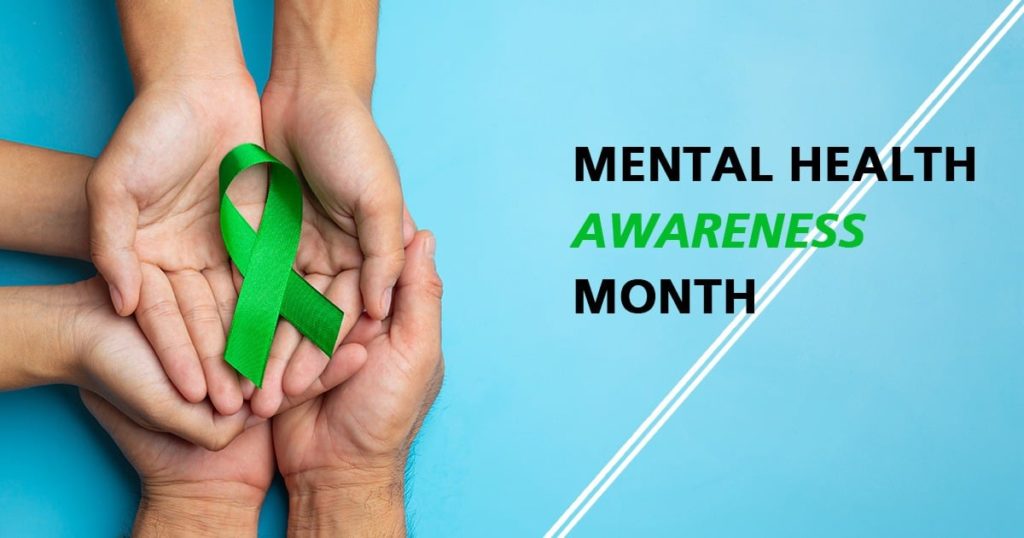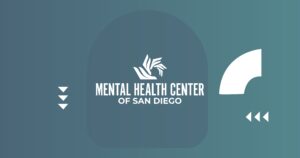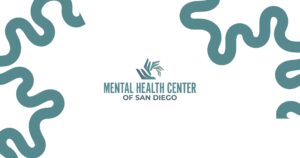May is Mental Health Awareness Month, and there’s perhaps no more important time to talk about mental health conditions in America than right now.
We’re dealing with an ongoing pandemic that’s left many feeling depressed, anxious, and isolated. Events around the world, particularly in Ukraine, are making mental health issues worse for many people.
Many people are still working from home, and remote employees tend to be increasingly disconnected from other people, which is one more factor amplifying issues for some.
We should use Mental Health Awareness Month to understand the importance of mental well-being and reduce the stigma of reaching out for help.
From connecting with our loved ones to check in to organizing mental health activities in the workplace or participating in virtual activities, we can all do a lot of things to elevate conversations surrounding mental health and wellness.
What is Mental Well-being and Health?
Mental health includes our psychological, emotional, and social well-being. Our state of mental wellness affects how we think, behave and feel. How we handle stress, our relationships with other people and our decision-making are all affected by mental wellness or a lack thereof. Experiencing good mental health is important at every point in our lives.
When you have positive mental well-being, you can realize your potential and deal with the stress that occurs in life. You’re productive at school or work, contribute to your community, and have strong relationships with other people.
If you’re experiencing symptoms that you believe could be related to a disorder like anxiety or depression, realize that you aren’t alone.
An estimated 1 in 5 adults in the United States experiences mental illness each year, and 1 in 20 adults, experience symptoms of a serious mental illness. One in six American youth between the ages of 6 and 17 experience a mental health disorder each year, with around half of all lifetime mental illness beginning by age 14.
The Growing Crisis in the United States
Right now is a necessary time to spotlight mental illness in America, as many experts say we’re at a crisis point.
- The Centers for Disease Control and Prevention (CDC) reported in 2019, 4.7% of adults 18 and older reported feelings of depression.
- More than 11% reported symptoms of anxiety.
- The CDC estimates that 40% of Americans with a year-long history of severe mental disorders receive no treatment.
The COVID-19 pandemic is increasing needs.
- From August 2020 to February 2021, the CDC says there was an increase in the proportion of adults reporting recent symptoms of anxiety or depression, and unmet health care need is also going up.
- The proportion of visits to the emergency department related to mental health has gone up substantially during the pandemic among children and teens.
There are many reasons people report not getting help for symptoms of a mental disorder.
Some of these reasons include:
- Not knowing how or where to get help or mental health services
- A lack of confidence in mental health treatment, often because people feel it won’t help
- Fear of the stigma surrounding this type of care or not wanting people to know
- Lack of affordability and concerns about health care costs
Mental Health Awareness Month seeks to help reduce these barriers and obstacles to getting care.
What is Mental Health Awareness Month?
In May, a national movement to raise more awareness about mental health. Throughout the month, organizations and individuals work to combat stigma, promote support and educate the public. There’s also a focus on advocacy for policies that support people with mental illness and their families.
The message amplified for Mental Health Awareness Month 2022 is “Together for Mental Health.”
According to the National Alliance on Mental Illness (NAMI), this is a time to realize a shared vision where anyone affected by mental illness can get the support and care they need to live a fulfilling life.
NAMI has various ways that individuals can get involved.
For example, they have graphics and social media images that you can download and share. There is a hashtag you can use on social media — #Together4MH.
You can go through NAMI to sign up for advocacy alerts, and when an opportunity comes up in your community, you can take action.
What Else Can You Do During Mental Health Month?
Aside from sharing on social media, some specific things you can do to amplify the message about Mental Health Awareness Month include:
Share Your Story
One of the most powerful things you can do to help others and help yourself is to share your story. When you share personal stories in whatever format you feel comfortable with, you’re coming to terms with what you went through and opening yourself up for support.
You also let others know they aren’t alone, reducing stigma through inspiring stories.
You can share your story with friends and family if you prefer. You can also share your story online or on social media.
You ultimately have control over what you’re comfortable with sharing, and you can do so anonymously through something like a blog post if you’d like.
Take Advantage of Programs at Work
Increasingly, employers understand the role that mental health plays in the company’s success. They are encouraging employees to take care of their well-being through wellness activities, mental health awareness activities, and, if working remotely, the availability of online events.
When opportunities come up that are part of your job, take advantage of them. It is good for your wellness, but you can also show your employer that it’s important to you and that you’d like to see more of these events.
Learn
Whether you’re dealing with your symptoms, someone you love, or you want to be a better voice and advocate; learning is something powerful you can do.
When you take steps to educate yourself on mental illness and wellness, you can spot red flags in people that you care about. It can also help you reduce your own stigmas or prejudices you might have.
Support People Around You
There are so many ways you can be a supportive resource for the people around you, including friends, family, and coworkers. Mental health struggles are often invisible, so people feel alone if they’re struggling with something like depression.
If you educate yourself on the symptoms, you may be able to see subtle signs. Just asking how someone is doing can go a long way.
Of course, it’s not up to you to “fix” someone, but being a listener is more important than you may even realize.
Checking in and showing support can make all the difference when experiencing mental health symptoms.
Practice Self-Care
There are enormous mental health benefits of practicing self-care in your own life, whether through physical activity and prioritizing physical health or just doing things you enjoy. When you take care of yourself, you’re better equipped to help others. You can also help the people around you feel inspired to care for themselves.
Support a Non-Profit
Maybe during May, you research local non-profits in your community that provides mental health support and reach out to see how you can help.
Even if there isn’t a local mental health organization that you could work with, there may be virtual activities you can be a participant in.
Eliminating Stigma During Mental Health Awareness Month
The more comfortable we all become with sharing our experiences and talking about mental health, the more we eliminate stigma. Even the smallest steps during May can make a world of difference.
To start prioritizing your mental health this month, call the Mental Health Center of San Diego at (858) 258-9883.




















